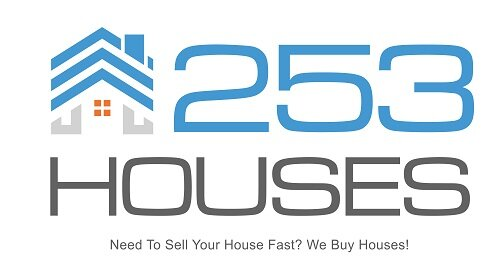You can sell your house after buying it much sooner than you think. At 253 Houses, we understand that life gives surprises, so selling quickly is sometimes necessary. Our process makes it easy for you to get started—we’ll help guide you through the entire process from start to finish, no matter when after purchase, you decide to sell. Whether within days or months of closing on a home sale, reach out at 253 Houses for an initial consultation about our Sell Your House Fast service with fast cash offer packages available now! We take care of the closing and all the details, so you don’t have to worry. 253 Houses is a trusted name in home buying/selling services with a long history of excellent customer service.
Understanding the Parameters of Selling Your Property
When you come to selling your property, understanding the parameters is key. As a homeowner with 253 Houses, you can confidently navigate through the complexities of Selling Your Property by following all state and local laws along with any family-specific regulations. Additionally, be sure to consider factors such as market conditions; current interest rates; closing costs; taxes owed on proceeds from the sale, and any cash or equity that may need to be borrowed in order for this transaction to occur smoothly. All of these details are necessary when considering how soon you can sell a house after buying it – so don’t forget them!
Legal Implications of Selling Your House Shortly After Purchase
You may be wondering how soon you can sell a house after purchasing it, as there could be serious legal implications if done shortly afterward. Most states have laws known as “deed of trust” or real estate sale contract laws that dictate the length of ownership before a home can be flipped by another buyer. It is important to look into these policies and ensure all regulations put forth by the state are followed when attempting to unload an investment too early. Depending on where your property is located, there may also be special provisions for first-time sellers that impact taxes due at closing time and any potential liabilities associated with reselling quickly – so make sure to explore all aspects surrounding this issue in order to avoid any unpleasant surprises!
Financial Factors that Affect Your Ability to Sell Quickly
You need to take financial factors into consideration when you are trying to sell a house quickly after buying it. Potential buyers’ budgets and the lenders’ criteria for approving mortgages will affect whether or not they can commit funds necessary for purchase. To speed up the process, you should aim towards making your property attractive and affordable by taking advantage of tax breaks or improving energy efficiency ratings before listing on the market. Additionally, addressing minor issues with your home upfront can help smooth negotiations during the sale process, thus helping make the transaction even quicker for everyone involved.
Market Conditions and Timing for Property Resale
You need to pay close attention to market conditions when it comes time for you to resell your house. Local home prices, rental rates, population trends in the area around your property, job growth across different industries, and current interest rates are all key indicators that will help inform whether now is the best time for putting a house up for sale. By monitoring these factors closely before making any decisions about buying or selling real estate, you can ensure potential buyers get maximum value out of their purchase.
253 Houses Buys Houses In These Cities:
Impact of Mortgage Terms on Your Ability to Sell
You understand how important it is to know about the mortgage terms when it comes to selling a house after you’ve bought it. Depending on the type of loan and terms agreed upon, they can have direct implications for listing your property at its current market value. Working with an experienced real estate agent who comprehends these nuances can be helpful in deciding which course of action works best once ready to sell. Even if mortgage term limitations exist, there could still be options that allow you to get top dollar and hasten the sales process as much as possible.
The Role of Mortgage Prepayment Penalties in Home Resale
You should know about the potential for mortgage prepayment penalties when selling your house. At 253 Houses, we understand that these can take substantial chunks of money away from what would otherwise be profit on the sale of your home. It is always best to fully research any such penalty you may have agreed upon when signing loan documents and attempt to negotiate with the bank prior to listing so as not to be surprised by this additional expense down the road. Knowing how much an early repayment might cost ahead of time could potentially save thousands at closing and make reselling a home easier in terms of budget planning.
How Refinancing Your Mortgage Can Affect Your Selling Timeline
Refinancing your mortgage could have a major effect on the timeline of selling a home. When deciding how quickly you can sell your house after purchasing it, refinancing is an important consideration. Depending on your current financial state, refinancing may mean lower interest rates and reduced payments – both factors that might accelerate or retard the process of putting your house back up for sale once again. In addition, longer-term mortgages often carry higher interest rates than shorter-term loans which would add to overall cost considerations when determining if selling sooner rather than later makes sense financially. Prior to making any ultimate decisions regarding refinancing and selling timelines, talk with specialists to fully understand all potential impacts so you make the most informed choice moving forward.
Other Articles You Might Enjoy
- Do I Need A Realtor To Sell My House
- How Long Do You Have To Sell A House After Someone Dies
- Do I Need A Lawyer To Sell My House Privately
- Do You Have To Disclose A Fire When Selling A House
- California Laws For Selling A Home
Tax Considerations When Selling Your House Soon After Buying
Selling a house soon after buying it can have tax implications, and the rules around this vary from place to place. In most cases, you will be liable for any capital gains taxes that result from selling your home quickly after purchase – meaning if the property increased in value between the time of purchase and the sale date. However, there could also be potential tax deductions related to expenses such as closing costs or other improvements made before resale. It is important for one to speak with an experienced real estate professional or accountant who specializes in taxation prior to making any decisions about when is best so they don’t end up having financial surprises later on down the road!
253 Houses Buys Houses In These Cities:
Understanding Capital Gains Tax and Its Impact on Property Resale
When it comes to selling your house after buying, understanding capital gains tax is essential. You need to know that Capital Gains Tax applies when you sell any asset that increases in value since the day of purchase. In a real estate context, this means if you buy a home and then resell at a profit, taxes must be paid on the profits made from the sale of said property. When thinking about resale values for your home or investment properties, taxation should be taken into account along with things like market trends and local demand; knowing how much will have to be repaid upon disposal can help you make decisions around when would be best to sell.
253 Houses Buys Houses In These Cities:
How the Home Sale Exclusion Rule Could Affect Your Resale Plans
You may be aware of the Home Sale Exclusion Rule, which allows you to exclude up to $250,000 of capital gains from the sale of your primary home as long as you have owned and occupied it for two out of five years leading up to its sale. This exclusion could potentially present a beneficial opportunity in some scenarios; however, it could also complicate or prevent you from selling within that period if circumstances change and you decide not to sell sooner than anticipated. Before making any decisions about when or how soon it is best to list your property for resale, consider all potential implications—including those related to taxation under the Home Sale Exclusion Rule.
Other Articles You Might Enjoy
- Selling Undeveloped Land
- How To Buy Abandoned Property
- How To Buy An Abandoned House
- Should Water Be Turned Off In Empty House
- What Happens To Abandoned Houses
Practical Tips for Selling Your Home Shortly After Purchase
You may feel intimidated by the prospect of selling your recently purchased home, but with a few simple preparations and strategic decisions, you can make it happen. To start off, think about staging your house to create an inviting atmosphere for prospective buyers. This could involve decluttering any excess furniture or spaces, focusing on making high-impact changes in bathrooms and kitchens if necessary, all while keeping within budget! Additionally, do some research into comparables in nearby markets so that you have guidance when setting the listing price – this will ensure qualified offers come through without leaving money on the table due to underpricing. Furthermore, look into prep work like appraisal costs which need to be covered beforehand before looking at closing details later during negotiations with interested parties. With these steps taken carefully, you’ll soon find yourself moved out of your newly sold abode!
Preparing Your Home for Sale to Maximize Return
You understand that selling your house can be overwhelming. Making sure you prepare it properly is essential to ensuring a successful transaction and maximizing returns on investments. From staging touches to basic repairs, having an experienced team help guide you through the process allows one to optimize their listings quickly and correctly from start to finish. Doing so has the potential for more viewings which increases chances of securing interest at or above the asking price while expediting closing times – so don’t delay! Contacting 253 Houses today starts you on track towards maximized returns with minimal effort required by yourself.
The Importance of a Good Real Estate Agent in Quick Sales
You need the help of an experienced real estate agent to sell your house quickly. They can assess the property and its features, as well as current market conditions to negotiate a fair price that works for both parties. This professional is also invaluable when it comes to properly positioning your home on listings platforms – such as MLS – so you can reach more potential buyers with greater ease. Agents understand how best to highlight key aspects of the home or neighborhood, which could lead more people towards making an offer on your property faster than if left unassisted. For these reasons, having a reliable and connected local professional working with you is essential for achieving success when selling quickly in any residential housing market today.




